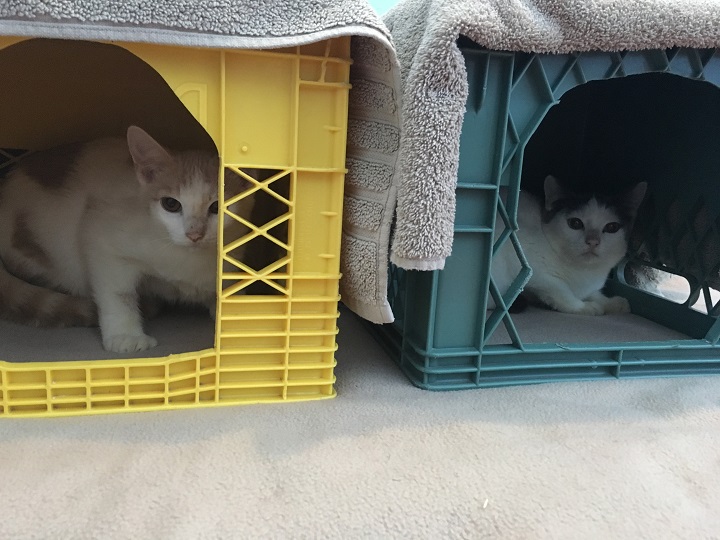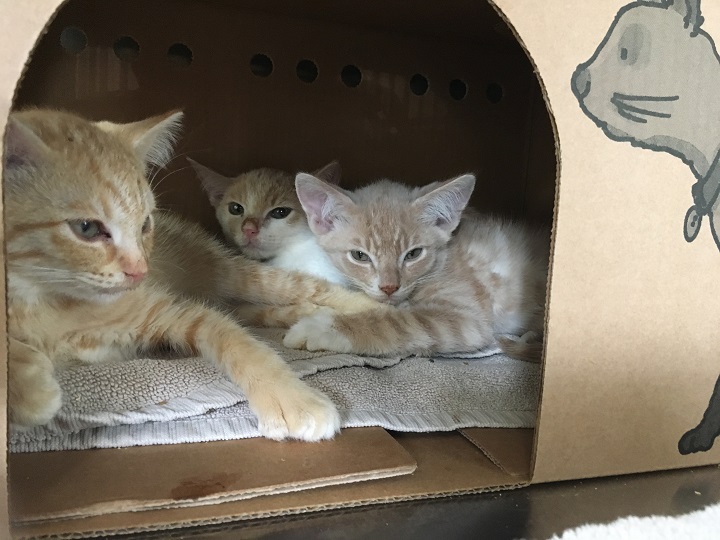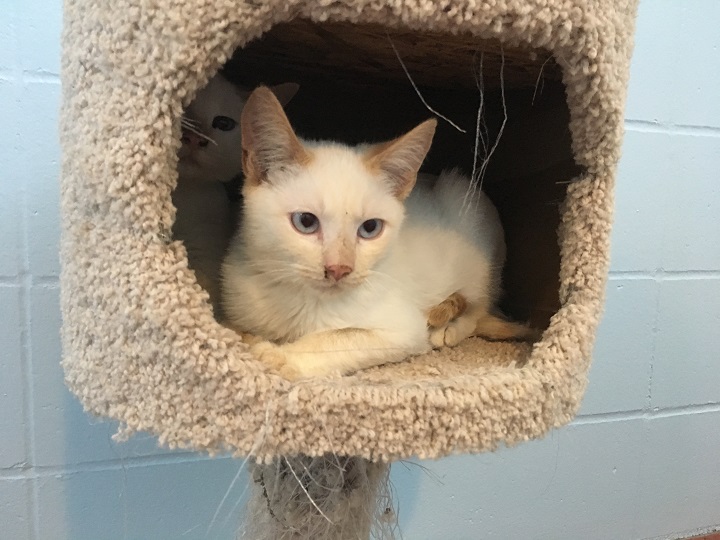The B.C. SPCA is appealing for help after 65 cats were surrendered to the Penticton shelter after a case of cat hoardng came to light.

“They are scared of people,” Penticton branch manager Carolyn Hawkins said. “Some are quiet thin, a lot of them have an upper respiratory infection, which is like a cat cold…a lot of them are polydactyl, which means they have extra toes on their feet , they were just interbred as far as we know.”
The felines, mostly kittens and young cats, were rescued from a hoarder in the South Okanagan this week.
The cats and kittens aren’t ready for adoption yet; it’ll be some time before they are ready. But the plan is to get them healthy and ready for new homes.
According to the B.C. SPCA, on Monday, around 20 cats and kittens were surrendered from the Penticton-area resident. Then, on Tuesday, another 40-plus cats and kittens were surrendered by the same resident.
“It was a case of an individual who clearly was overwhelmed with the number of cats in her care,” said Lorie Chortyk, general manager of community relations for B.C. SPCA. “We were made aware of the situation and we worked with her and she was cooperative and voluntarily surrendered the animals to us.”
Chortyk said the cats and kittens came from a residence; not an acreage or a farm, as might be expected with 65 cats and kittens involved.

Get daily National news
“In hoarding situations, we’ll often see that, a large number of animals in a small space. We’re just happy to have them out of there and into our care so they can get the treatment that they need.”
Regarding treatment, Chortyk said the cats are somewhat skittish, a byproduct of residing with the hoarder.
“Some of them have upper-respiratory (issues) or medical treatments that we’re dealing with, but they are fairly fearful. We often see that in a hoarding situation because in those environments, there’s not always a lot of other people coming in, so they’re not used to being around humans. Everyday sights and sounds can be a bit frightening for them.
“So we probably will have to do a fair bit of behavioural modification with them to get them to the point that they’re comfortable around other people and can be adopted. That’s quite time consuming.”
To rehabilitate the cats and kittens, they’ll likely be separated and sent to SPCA branches in Kelowna, Kamloops and Vancouver Island so they can get more one-on-one attention.
That attention, however, doesn’t come freely.
“Obviously we have our regular medical budgets, but all of that is covered by community donations.”
“Whenever we have a large intake of animals like this, particularly those that need a lot of testing and treatment and veterinary care, it really does put a strain on the financial resources,” said Chortyk. “So we’d be very grateful for any assistance that we can get for the care of these particular cats.”
Sadly, hoarding cases like this aren’t one-offs. Chortyk noted that “unfortunately, this isn’t an unusual situation for us. I know that we’re looking at two additional cases right now that each have 50-plus cats. It’s a fairly frequent situation that we encounter.”
To learn more about the BC SPCA, or do donate, click here.





Comments
Want to discuss? Please read our Commenting Policy first.